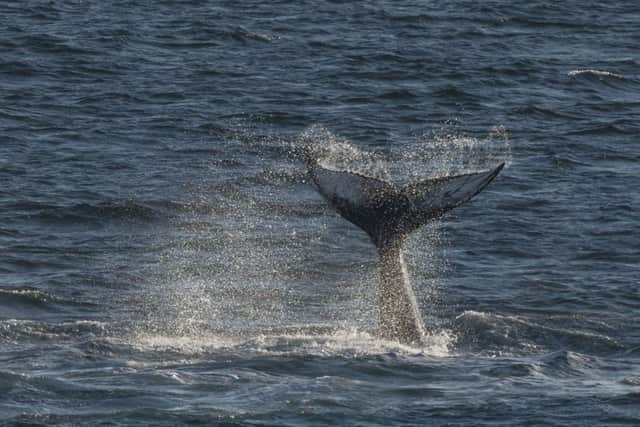Humpback whales swap songs amid migration trips


Now researchers have found out that humpback whales are doing pretty much the same thing, although their renditions are strictly A cappella, with not a fiddle or banjo in sight. A new study looked at the songs whales are singing in the Kermadec Islands in the South Pacific – a recently discovered migratory stopover for humpback whales.
Those songs were compared to ones being performed in a number of wintering locations from New Caledonia to the Cook Islands.
Advertisement
Hide AdAdvertisement
Hide AdResearchers found the whales teach and learn songs as they come into contact with others during migration – and they even mix them up to create new ones.
Luke Rendell, from the University of St Andrews, said: “Song themes from multiple wintering grounds matched songs recorded at the Kermadecs, including a hybrid of two songs.
“This suggests that multiple humpback whale populations from across the South Pacific are travelling past these islands and song learning may be occurring.”
The research is published in the journal Open Science.
Ellen Garland, also from the University of St Andrews, added: “Male humpback whales perform complex, culturally transmitted song displays.
“Our research revealed the migration patterns of humpback whales appear to be written into their songs.”
The humpback whale is a species of baleen whale whose adults range in length from 12-16 metres and weigh about 30 tonnes.
The humpback has a distinctive body shape, with long pectoral fins and a knobbly head.
The mammals, which live up to 50 years and migrate up to 16,000 miles each year, have been regularly sighted in the Moray Firth and Firth of Forth in recent years.
Advertisement
Hide AdAdvertisement
Hide AdThe humpback whale is found offshore along Scotland’s west coast from June each year.
Their songs last ten to 20 minutes each and have been linked with mating, but it remains unclear whether they are sung to attract females or in a singing contest with other males.